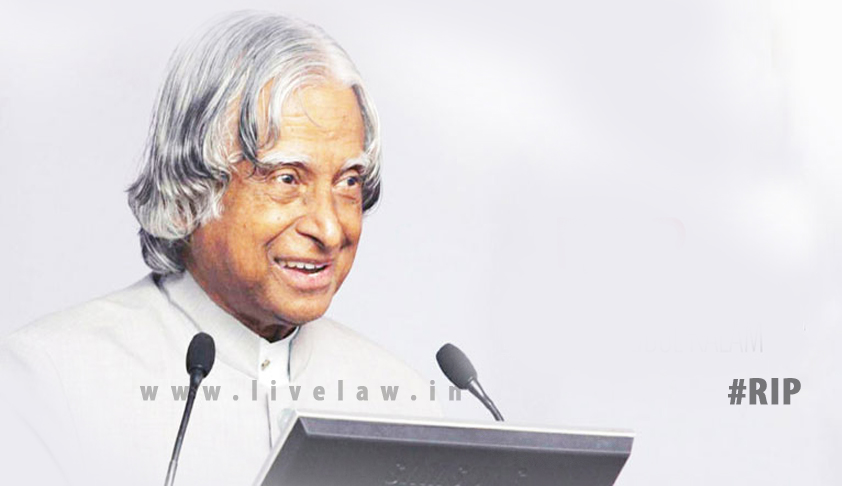Next Story
29 July 2015 5:24 PM IST
Former President Dr. A.P.J. Abdul Kalam, popularly known as Missile man, passed away after collapsing while delivering a lecture at the Indian Institute of Management, Shillong yesterday. His sudden demise has left a great vacuum in the country which can never be filled up. He was highly respected for his outstanding personality and humanitarian qualities. He graced the Indian Presidency for...

